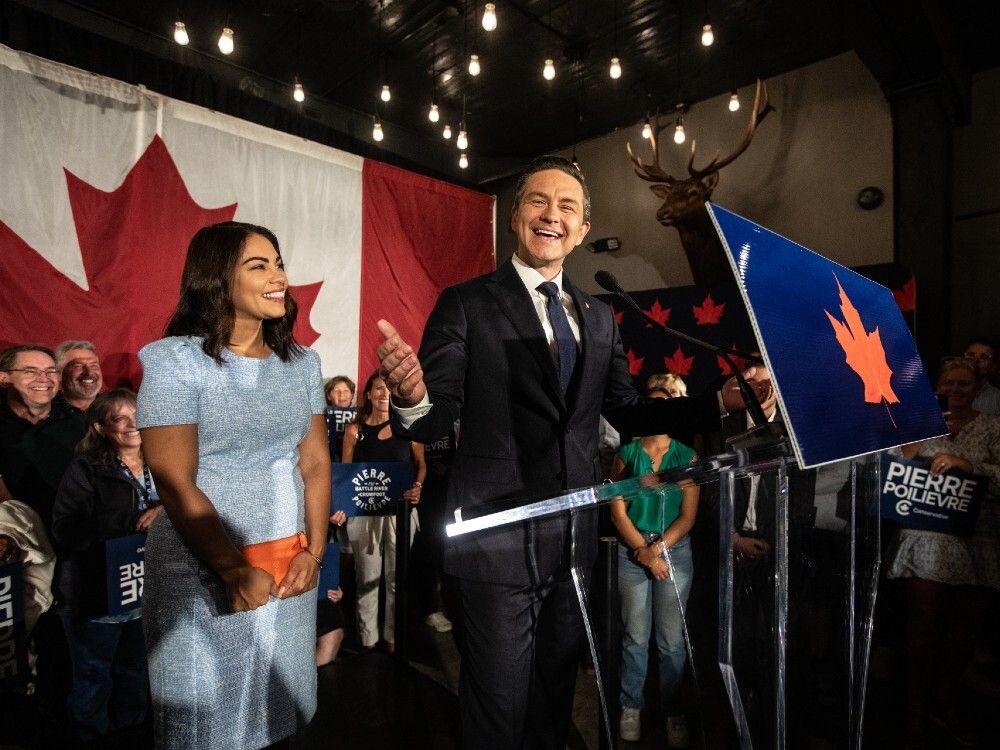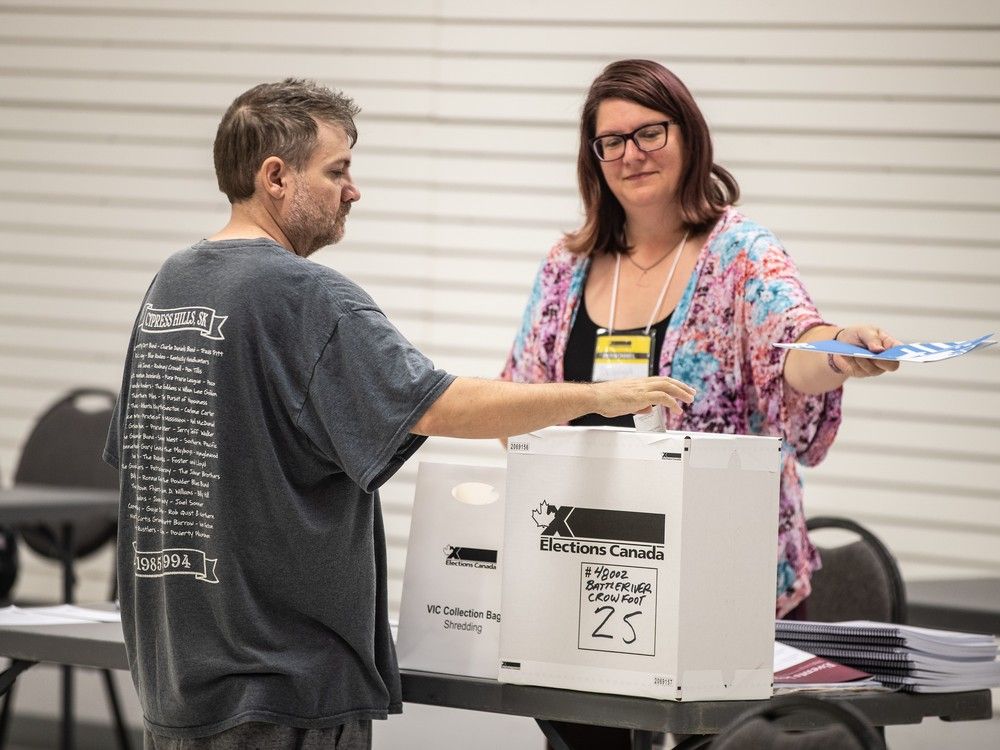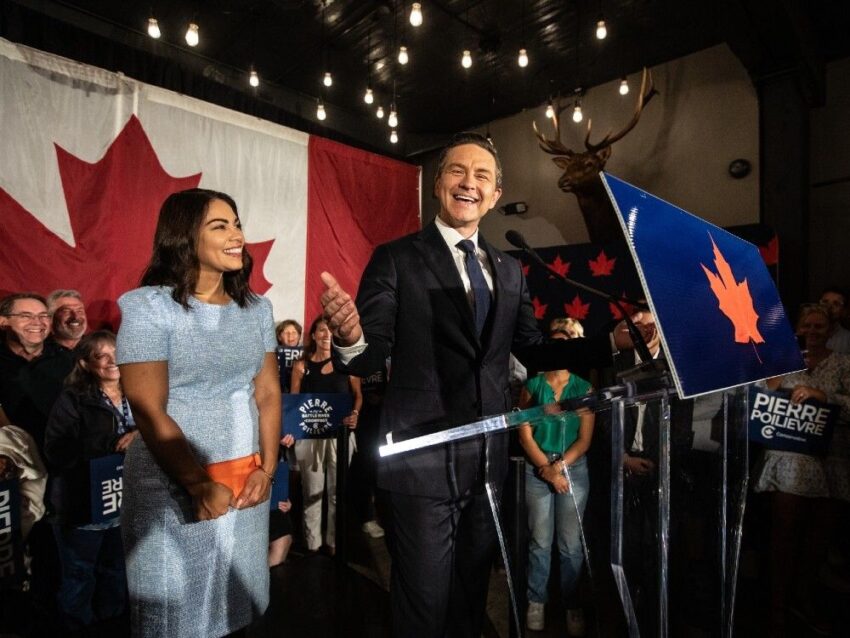
OTTAWA — Embattled Conservative Leader Pierre Poilievre bought himself some breathing room with a resounding byelection win in rural Alberta on Monday.
Poilievre had just over 80 per cent of the vote, with
99 per cent of ballots counted
in Battle River
—Crowfoot
, holding a 70 point edge over
independent challenger Bonnie Critchley
.
Conservative Damien Kurek won 83 per cent of the vote in April’s federal election, a mark Poilievre will just miss.
Poilievre, who lost his long-held Ottawa area seat in April, said in an emotional victory speech that he drew inspiration from the rural Alberta community’s true grit.
“Getting to know the people in this region has been the privilege of my life. In fact, I’ve had a hell of a lot of fun,” Poilievre told supporters in Camrose, Alta.
“You don’t give up, so I don’t give up,” said Poilievre, reflecting on the myriad hardscrabble stories he heard from members of the community on the campaign trail.

He added that the experience of running in a byelection so soon after losing in the general forced him to re-learn “humility and hard work.”
Battle River
—Crowfoot resident Lance Neilson told the National Post he was taken aback by the throng of voters who showed up to support Poilievre on election day.
“That was the longest line I’ve ever been in to vote here,” said
Neilson.
“I don’t think other parts of Canada understand what this represents to us. No one is leaving this to chance.”
Turnout was a robust 59 per cent, with 50,434 of 85,736 registered voters showing up at the polls.
Poilievre spent much of the campaign taking aim at the Liberal government’s
controversial electric vehicle mandate
, calling the planned phase out of gas-powered vehicles akin to “banning rural life.”
The Liberal vote was down by more than half versus April, with Liberal candidate Darcy Spady at just 4.3 per cent as of Tuesday morning.
NDP candidate Katherine Swampy also had a rough night, barely breaking the 2 per cent mark.
In the end, the
much ballyhooed Longest Ballot Committee
failed to make much of a dent in the proceedings, with none of the 201 candidates sponsored by the protest group winning more than a handful of votes.
Elections Canada announced last month
would be used in the byelection, as a result of the historically large number of candidates entered into the race.
Just to be on the safe side, the Conservative
instructing voters on how to fill in “Pierre Poilievre” on their ballots outside of voting stations.

There’s also little evidence that the rising tide of Alberta separatism had much of an impact in the race.
The United Party’s Grant Abraham, who called ahead of the byelection for a
referendum on Alberta’s independence
, finished with just 1.5 per cent of the vote.
Libertarian Michael Harris, who also supports a referendum, won a paltry 0.2 per cent.
Poilievre called himself a “Canadian patriot” in a
and said Alberta should stay in Canada even if the Liberals continue to hold onto power in Ottawa.
He’s now set to resume his role as Leader of the Official Opposition in the House of Commons, facing off directly against Prime Minister Mark Carney when the House meets again next month.
Yet even with his strong showing in the byelection, Poilievre has a long road back to relevance after losing the April election to Carney’s Liberals.
Polls show him
on a number of key issues since the election.
Poilievre will face his next major test at his Conservative leadership review, set for late January in Calgary.
National Post
rmohamed@postmedia.com
Our website is the place for the latest breaking news, exclusive scoops, longreads and provocative commentary. Please bookmark nationalpost.com and sign up for our daily newsletter, Posted, here.
